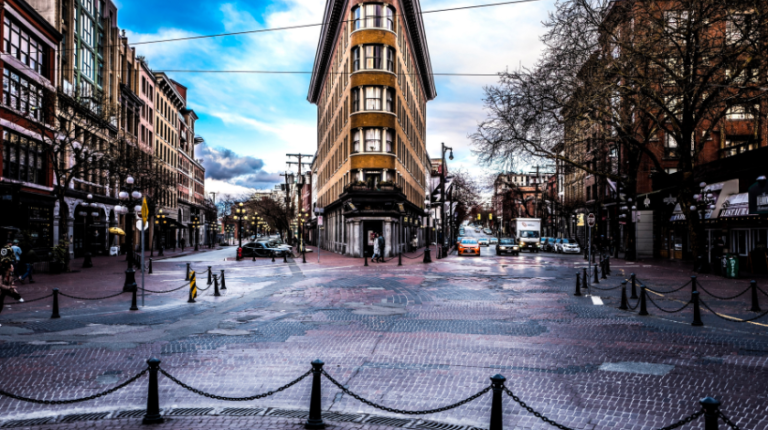Nestled along the northern banks of the River Clyde, Clydebank holds a rich tapestry of history, resilience, and community spirit. For those born and bred in this iconic Scottish town, to “call yersel a Bankie” is to wear a badge of honor—one steeped in pride, hard work, and an unbreakable connection to home. But what does it truly mean to be a Bankie, and how does this identity continue to thrive in the modern world? Let’s dive into the essence of what makes Clydebank’s people and culture so remarkable.
A Brief History of Clydebank
From Humble Beginnings to Industrial Powerhouse
Clydebank’s story begins in the 19th century, when the construction of the Clyde Navigation Trust and the establishment of shipyards transformed a once-rural area into a booming industrial hub. The launch of John Brown & Company shipyard in 1871 was a defining moment, placing Clydebank on the global map as a leader in shipbuilding. Iconic vessels like the RMS Queen Mary and the RMS Queen Elizabeth emerged from its docks, showcasing Clydebank’s ingenuity and craftsmanship.
The Blitz and Resilience
The Clydebank Blitz of March 1941 is a cornerstone of Bankie identity. German air raids devastated the town, destroying homes, businesses, and much of the shipyard infrastructure. Despite the immense loss of life and property, the spirit of Clydebank endured. The community’s resilience in the face of adversity became a defining trait of its people, solidifying their reputation as strong and determined individuals.
The Essence of Being a Bankie
Community Spirit
At the heart of Bankie identity lies an unparalleled sense of community. Whether it’s rallying together during tough times or celebrating local achievements, Clydebank’s people exemplify what it means to support one another. From local football clubs to grassroots initiatives, the town thrives on collective effort and shared pride.
A Strong Work Ethic
Rooted in its industrial heritage, Clydebank’s people are known for their dedication and hard work. The shipyards may no longer dominate the local economy, but the values instilled during their heyday remain. Bankies carry a legacy of determination and perseverance that continues to define their character.
Cultural Identity
From the distinctive West Dunbartonshire accent to the humor and warmth that Bankies are famous for, Clydebank’s culture is as vibrant as its history. Local slang, traditions, and a shared love for the town’s history create a sense of belonging that binds residents together.
Modern Clydebank: Balancing Tradition and Progress
Revitalization and Development
Clydebank has undergone significant transformation in recent decades. Projects like the Clydebank Rebuilt initiative have breathed new life into the town, creating modern infrastructure while preserving its historic charm. Landmarks like the Titan Crane now stand as symbols of Clydebank’s industrial past and its forward-thinking future.
Celebrating Local Achievements
Modern Bankies continue to make their mark across various fields, from sports and arts to business and academia. The town celebrates these achievements with the same enthusiasm as it honors its historical milestones, ensuring that the spirit of Clydebank remains alive and thriving.
Challenges and Opportunities
Like many towns with industrial roots, Clydebank faces challenges such as economic shifts and social inequality. However, its resilient spirit and strong community bonds position it well to tackle these issues and seize new opportunities for growth.
Famous Bankies and Their Legacy
Clydebank has produced numerous notable figures who embody the town’s spirit and values:
- Jackie Stewart – The legendary Formula 1 driver, known as “The Flying Scot,” grew up in the area, bringing international acclaim to his hometown.
- The Proclaimers – While not originally from Clydebank, this iconic Scottish band frequently celebrates the working-class ethos shared by Bankies.
- Donald Dewar – Often regarded as the “Father of the Nation” for Scotland’s modern devolved government, Dewar’s work resonates with Clydebank’s pride in Scottish identity.
Local Landmarks and Attractions
The Titan Crane
A relic of Clydebank’s shipbuilding heyday, the Titan Crane has been transformed into a heritage site offering stunning views and a glimpse into the town’s industrial past.
Clydebank Museum and Art Gallery
This museum is a treasure trove of local history, housing artifacts from the Blitz, shipbuilding memorabilia, and exhibits celebrating Clydebank’s artistic contributions.
John Brown’s Shipyard
Although the shipyard has long ceased operations, its legacy lives on through stories, artifacts, and the indomitable spirit of those who worked there.
What It Means to Call Yersel a Bankie Today
In a rapidly changing world, the identity of being a Bankie continues to evolve. For many, it’s about embracing both tradition and modernity, honoring the town’s rich history while looking forward to new opportunities. Whether through community initiatives, local festivals, or simply a shared sense of pride, Bankies ensure their unique identity remains alive and well.
Conclusion
To “call yersel a Bankie” is to claim a heritage of resilience, community, and pride. Clydebank’s people have weathered storms, celebrated triumphs, and maintained an unbreakable bond with their hometown. As the town continues to grow and change, one thing remains certain: the spirit of the Bankie is here to stay, a testament to the enduring legacy of this remarkable Scottish town.

